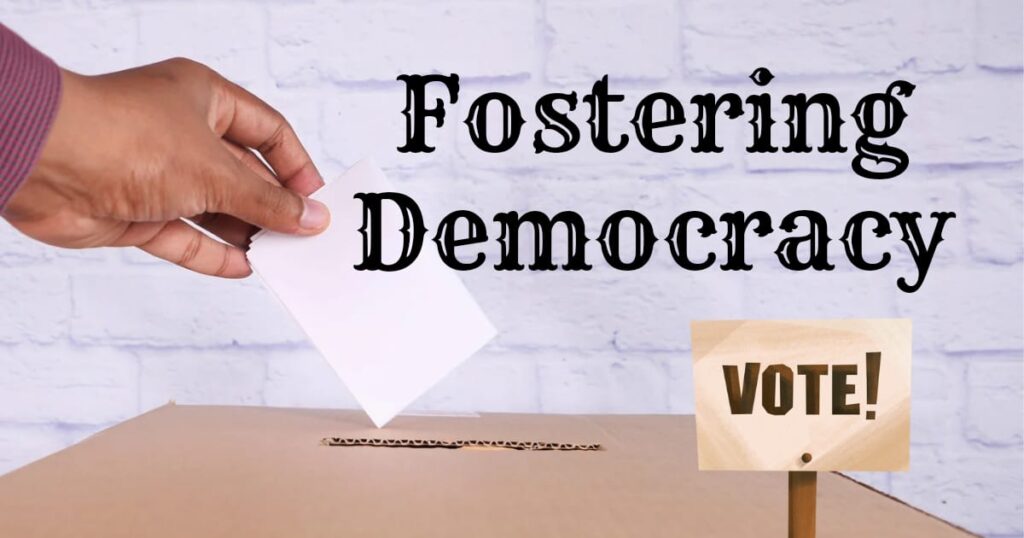Fostering Democracy through Civic Engagement: The Role of Political Participation in Pakistan
Introduction
In the heart of South Asia, Pakistan stands as a testament to the relentless pursuit of democratic values amidst a complex political landscape. This article explores the vital role of civic engagement and political participation in strengthening Pakistan’s democracy. By delving into historical contexts, current challenges, and future prospects, we aim to shed light on how active citizen involvement is pivotal in shaping a more transparent, accountable, and inclusive political news in Pakistan.
Historical Context
Pakistan’s journey towards democracy has been tumultuous yet inspiring. Since its inception in 1947, the country has navigated through various political regimes, from military dictatorships to civilian governments. Each phase brought its challenges and learning, contributing to the evolving nature of civic engagement in Pakistan. The resilience of the Pakistani people, seen in their persistent struggle for democratic rights, underpins the nation’s political narrative.
The Current State of Civic Engagement
Today, civic engagement in Pakistan manifests in various forms, from voting in elections to participating in civil society activities. Notably, the rise of digital platforms has revolutionized political participation, enabling citizens, especially the youth, to express their opinions, mobilize support, and hold leaders accountable more effectively than ever before.
However, challenges persist. Issues like political instability, lack of education, and socio-economic disparities often hinder widespread civic engagement. Additionally, the lingering effects of past authoritarian regimes sometimes stifle free expression and political activism.
The Role of Political Participation
Political participation is not limited to casting a vote; it extends to being informed about political affairs, engaging in public discourse, and contributing to decision-making processes. In Pakistan, this can take several forms:
1. Community Mobilization: Local communities in Pakistan play a crucial role in addressing grassroots issues. By organizing community meetings and advocacy campaigns, citizens can influence local governance and policy-making.
2. Youth Involvement: With a significant portion of its population under 30, Pakistan’s youth are a formidable force in shaping the political landscape. Their involvement, from student unions to social media activism, is crucial in driving progressive change.
3. Women in Politics: Women’s participation in Pakistan’s political arena, both as voters and leaders, is essential for balanced representation and gender-sensitive policymaking.
4. Civil Society and NGOs: Non-governmental organizations and civil society groups act as catalysts for civic engagement, raising awareness on key issues like human rights, environmental conservation, and electoral integrity.
Challenges and Opportunities
While the path forward is laden with challenges, it also presents numerous opportunities. Enhancing civic education, promoting digital literacy, and ensuring fair and free elections are vital steps towards bolstering civic engagement. The government’s role in facilitating a safe space for political discourse and participation cannot be overstated.
Conclusion
Civic engagement and political participation are the lifeblood of a thriving democracy. In Pakistan, fostering these elements is not just a choice but a necessity for the nation’s democratic health and socio-economic development. As citizens increasingly engage in the political process, they reinforce the foundations of democracy, paving the way for a brighter, more inclusive future for Pakistan. Explore the vibrant and ever-changing landscape of Pakistan with Pakistan Time, your reliable source for the latest news in urdu, trends, and insights.
About MarketInsidesNews
Lorem ipsum dolor sit amet, consectetur adipiscing elit. Ut elit tellus, luctus nec ullamcorper mattis, pulvinar dapibus leo. Lorem ipsum dolor sit amet, consectetur adipiscing elit. Ut elit tellus, luctus nec ullamcorper mattis, pulvinar dapibus leo.





